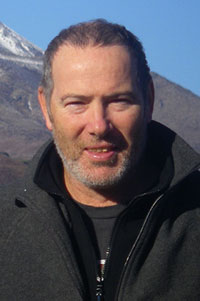
Tim Stainton, Director of the Centre for Inclusion and Citizenship and Professor of Social Work at UBC
Pre-natal testing and termination of fetuses thought to carry disability-related traits are among the topics to be discussed at UBC Okanagan on Jan. 29 when Dr. Tim Stainton, Director of the Centre for Inclusion and Citizenship and Professor of Social Work at UBC in Vancouver, speaks on Disability, Biotechnology, and the Right to Exist.
Visiting UBC Okanagan as part of the Disabilities Health Research Network (DHRN) Speaker Series, Stainton will examine the issues surrounding pre-natal testing, the current state of the technology and its impact.
Stainton’s lecture considers the arguments used to support the use of such technology, the arguments put forward by the disability community in opposition, and what, if anything, can be done to limit the growth of such technology and the elimination of persons who carry traits targeted by such tests.
The talk is at 12 noon, January 29, in room FIP 139 of the Fipke Centre for Innovative Research at UBC Okanagan (3333 University Way, Kelowna). The lecture is free and open to the public. Lunch will be provided. To register, contact the Disabilities Health Research Network at 250-807-8793 or visit http://www.dhrn.ca/.
Stainton received his PhD from the London School of Economics and Political Science in 1992. He is author of numerous works on disability rights, individualized funding, history, ethics and theory. He is principal investigator on the multi-year Community Living Research Project and a board member of the Canadian and the British Columbia Association for Community Living.
About the Disabilities Health Research Network
The Disabilities Health Research Network was established in 2006 as one of eight Health of Population research networks in B.C. funded by the Michael Smith Foundation for Health Research. DHRN Co-leaders are Dr. Lawrence Berg, Associate Professor of Geography at UBC Okanagan, Dr. Bonnie Sawatsky, Associate Professor of Orthopeaedics with UBC’s Faculty of Medicine, and Dr. Chris McBride, Managing Director of the Spinal Cord Injury (SCI) Solutions Network.
The DHRN was created to increase knowledge about biological, social, and community related factors in order to minimize further impairment, improve levels of ability, and enhance community participation of persons with disability.
Disabilities Health Research hosts student conference in Vancouver Feb. 4
The DHRN is hosting a major student conference at ICORD (International Collaboration on Repair Discoveries) in Vancouver on February 4. The Communicating for Effective Collaboration conference will focus on the unique needs of students involved in disability research from both the social science and biomedical perspectives. Featured keynote speaker is Heather McKay, Director of the Centre for Hip Health and Mobility, Vancouver General Hospital.
The conference will be held at ICORD in the Blusson Spinal Cord Centre, 818 West 10th Ave. in Vancouver, from 8:30 a.m. to 5 p.m., with a reception and student research poster session from 5 to 7 p.m.
In addition to a full-day conference, the DHRN is hosting a pre-conference speaker on February 3, at 7 p.m., also at ICORD in the Blusson Spinal Cord Centre in Vancouver. Dr. Michael Prince is the Lansdowne Professor of Social Policy in the Faculty of Human and Social Development at the University of Victoria.
Registration for the pre-conference speaker and the Feb. 4 conference is free. Go to http://www.dhrn.ca/ to register.
— 30 —